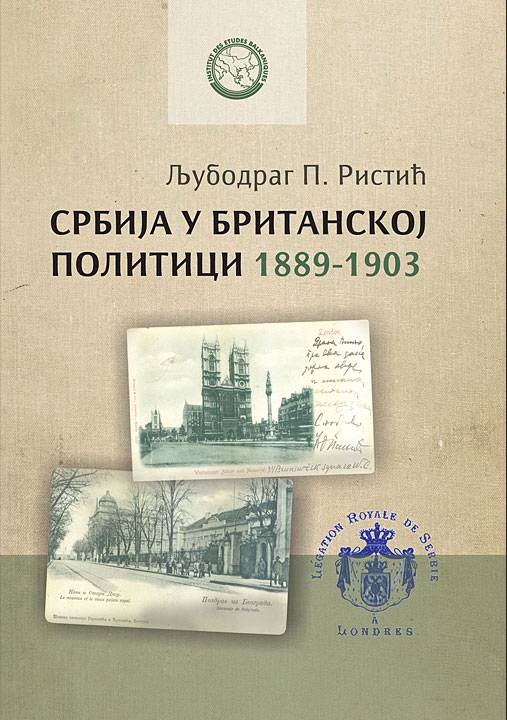News
Ljubodrag P. Ristić, Serbia in British Politics (1889 -1903)

The Institute for Balkan Studies of the Serbian Academy of Sciences and Arts has published Ljubodrag P. Ristić’s new book, Srbija u britanskoj politici (1889-1903)[Serbia in British Politics (1889 -1903)], a thoroughly researched study of the British-Serbian relations during the reign of King Aleksandar Obrenović. In 1878 Great Britain had thwarted successfully Russia’s attempts to strengthen its influence in the Balkans and it was now protecting its interests in the Mediterranean by backing Austria-Hungary and supporting Turkey. The decades that followed meant for the Balkans a difficult period of the confrontation and adjustment of Russian and Austrian-Hungarian interests and of the mutual contention of the Balkan states seeking to implement their national projects. The author comes to the conclusion that the attitude of Great Britain to Serbia in the 1889-1903 period was characterized by a concern for Serbia as a region in which the interests of Vienna and Petersburgh competed and intersected. At that time Britain warned Serbia that it must not disturb the peace in the Balkans and that it should seek instead to preserve its independence and build up its internal stability. The siding of Serbia with a third power was not possible because of the geographical distance, because of the successful efforts of Russia and Austria-Hungary to isolate it, and because of its small political and economic potential. The activities of the British representatives in Belgrade, as well as in the other Balkan centers, reflected in fact London's attitude to Russia and Austria-Hungary. Serbia and its governments did not benefit much from the British politics in the Balkans in this period.